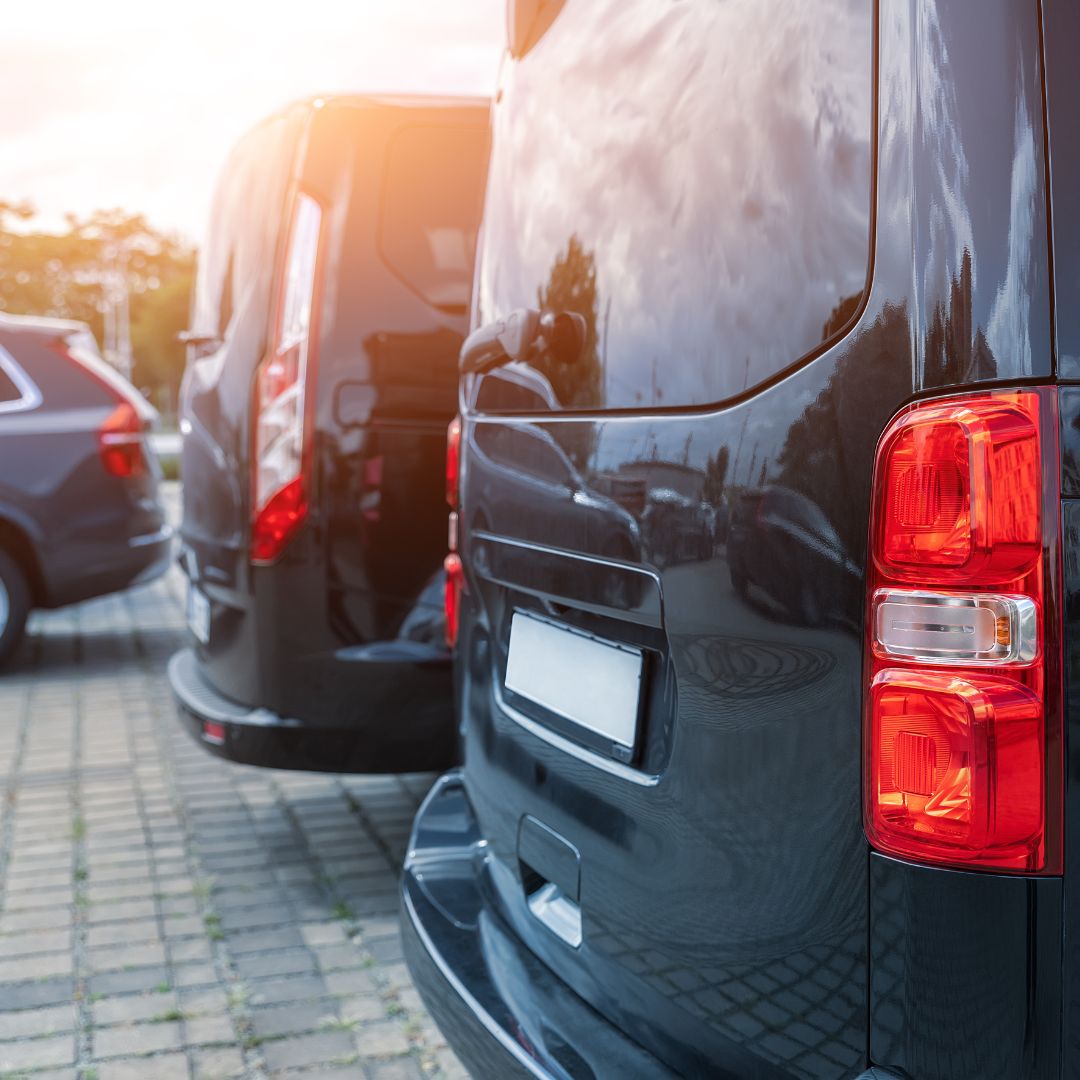In an age where vehicle theft and unauthorized usage pose significant risks to fleet businesses, the implementation of advanced security measures becomes paramount. Car immobilisers stand as a cornerstone in safeguarding fleet assets, ensuring operational continuity, and mitigating financial losses.
This article explores the multifaceted landscape of car immobilisers, their benefits, legal considerations, safe usage practices, and future trends in the Australian fleet management sector.
Introduction to Car Immobilisers
Car immobilisers, often referred to as anti-theft systems, are electronic devices designed to prevent unauthorized access and operation of vehicles. By disrupting the engine’s ignition system, immobilizers render the vehicle immobile unless the correct key or token is present. In the realm of fleet management, where the efficient utilization of vehicles is crucial, the integration of car immobilizers has become a fundamental aspect of ensuring asset safety and security.
Benefits of Car Immobilisers for Fleet Businesses
Enhanced Asset Protection
Car immobilisers serve as a formidable deterrent against theft and unauthorized usage of fleet vehicles. By effectively immobilizing the engine, these devices thwart attempts by unauthorized individuals to start or operate the vehicle without proper authorization, thereby safeguarding valuable assets from potential loss or damage.
Cost Savings and Operational Efficiency
The implementation of car immobilisers can lead to substantial cost savings for fleet businesses. By reducing the risk of vehicle theft and unauthorized usage, fleet operators can benefit from lower insurance premiums and decreased expenses associated with vehicle recovery and replacement. Additionally, the enhanced security provided by immobilizers promotes operational efficiency by minimizing disruptions caused by theft or misuse of vehicles.
Improved Safety and Compliance
Car immobilisers contribute to enhanced safety and compliance within fleet operations. By restricting vehicle access to authorized personnel only, these devices help mitigate risks associated with unauthorized driving, including accidents, injuries, and liabilities. Furthermore, adherence to regulatory requirements regarding vehicle security and anti-theft measures reinforces fleet businesses’ commitment to safety and compliance standards.
Types of Car Immobilisers
Passive and Active Immobilisers
“Car immobilisers are available in various forms, including passive and active systems. Passive immobilisers, such as transponder-based systems, automatically engage upon vehicle shutdown and require no user intervention. In contrast, active immobilisers necessitate manual activation by the driver, typically through the use of a key fob or keypad. Both passive and active immobilizers offer effective protection against unauthorized access, with active systems providing additional control and customization options for fleet operators.”

Advanced Features and Technologies
Recent advancements in car immobilizer technology have introduced a range of innovative features to enhance security and functionality. Biometric authentication, remote immobilization capabilities, and integration with vehicle telematics systems are among the cutting-edge features available in modern car immobilizers. These advanced technologies empower fleet businesses with greater control over vehicle security and enable real-time monitoring and management of fleet assets.
Legal Implications of Car Immobiliser Usage
Compliance with Australian Regulations
Fleet businesses must ensure that the installation and usage of car immobilizers comply with relevant Australian regulations and standards. This includes adherence to guidelines established by regulatory authorities, such as the Australian Communications and Media Authority (ACMA) and the Australian Competition and Consumer Commission (ACCC), regarding the use of electronic security systems in vehicles.
Data Privacy Concerns and Regulations
The collection and storage of vehicle-related data by car immobilizers raise important privacy considerations for fleet businesses. Companies must adhere to data privacy regulations, such as the Privacy Act 1988 (Cth), and implement robust data protection measures to safeguard sensitive information collected by immobilizer systems. Clear policies regarding data collection, usage, and sharing should be established to ensure compliance with legal requirements and maintain customer trust.
Safe Installation and Usage Practices
Professional Installation and Maintenance
Car immobilizers should be installed and maintained by qualified professionals to ensure proper functionality and reliability. Fleet operators should collaborate with certified technicians or authorized service providers to perform installation, calibration, and periodic maintenance tasks. Regular inspections and software updates are essential to address potential vulnerabilities and ensure the continued effectiveness of immobilizer systems.
Proper Storage of Immobiliser Codes
The codes or tokens used to activate car immobilizers should be securely stored and managed to prevent unauthorized access or misuse. Fleet businesses should establish robust procedures for storing and distributing immobilizer codes, limiting access to authorized personnel only. Additionally, measures such as encryption and multi-factor authentication can enhance the security of immobilizer codes and protect them from exploitation by malicious actors.
Employee Training and Accountability
Effective employee training programs are essential to promote awareness of car immobilizer usage guidelines and best practices among fleet personnel. Training modules should cover topics such as proper immobilizer operation, emergency procedures, and reporting protocols for suspected security incidents. By fostering a culture of security awareness and accountability, fleet businesses can empower employees to actively participate in maintaining the integrity and effectiveness of immobilizer systems.
Additional Safety Measures for Fleet Vehicles
In addition to car immobilizers, fleet businesses can implement supplementary safety measures to further enhance asset protection and security. GPS tracking systems enable real-time monitoring of vehicle location and movement, facilitating rapid response to theft or unauthorized usage incidents. Vehicle alarm systems provide audible alerts in the event of unauthorized entry or tampering, deterring potential thieves and enhancing overall security. Furthermore, integration with fleet management software enables comprehensive oversight of vehicle operations, including maintenance scheduling, driver behavior monitoring, and route optimization.
Future Trends in Car Immobiliser Technology
As technology continues to evolve, car immobilizers are expected to incorporate advanced features and functionalities to meet evolving security challenges and user demands. Innovations such as biometric authentication, remote immobilization capabilities, and integration with vehicle telematics and IoT platforms are poised to redefine the landscape of vehicle security and asset protection. Furthermore, advancements in encryption algorithms and cybersecurity protocols will enhance the resilience of immobilizer systems against emerging threats such as hacking and cyber attacks. By embracing these future trends, fleet businesses can stay ahead of the curve and ensure the continued effectiveness of their security infrastructure in an increasingly digitized and interconnected world.
Environmental Impact of Car Immobilisers
In addition to their security benefits, car immobilisers have the potential to contribute to environmental sustainability through energy-efficient design and manufacturing practices. By optimizing power consumption and utilizing eco-friendly materials in their construction, immobilizer manufacturers can minimize the carbon footprint associated with their production and operation. Furthermore, proper disposal and recycling of end-of-life immobilizer components help reduce environmental pollution and conserve valuable resources. As fleet businesses strive to adopt greener and more sustainable practices, eco-friendly immobilizer systems offer an opportunity to align security objectives with environmental stewardship goals, creating a win-win scenario for businesses and the planet.
Public Perception and Awareness of Car Immobilisers
Despite their proven effectiveness in enhancing vehicle security, car immobilizers remain relatively unknown to the general public. Educating consumers and raising awareness about the benefits of immobilizer technology can help dispel misconceptions and promote widespread adoption of these security measures. Public outreach campaigns, educational materials, and collaboration with industry stakeholders play a crucial role in increasing public awareness and understanding of car immobilizers and their role in safeguarding vehicles and valuables. By fostering a culture of security consciousness and proactive risk management, fleet businesses can contribute to safer communities and a more secure future for all.
Challenges and Limitations of Car Immobilisers
While car immobilizers offer significant security benefits, they are not without their challenges and limitations. Vulnerabilities to hacking and tampering pose ongoing threats to immobilizer systems, requiring constant vigilance and proactive security measures to mitigate risks. Compatibility issues with older vehicle models and aftermarket modifications may present logistical challenges during installation and maintenance. Furthermore, reliance on electronic components makes immobilizers susceptible to malfunctions and software glitches, necessitating timely troubleshooting and resolution to maintain system integrity and effectiveness. Despite these challenges, the benefits of car immobilizers outweigh the risks, making them indispensable tools for fleet businesses seeking to protect their assets and ensure operational continuity.
Government Incentives for Car Immobiliser Adoption
To incentivize the adoption of car immobilizers and promote vehicle security, government agencies may offer grants, subsidies, or tax incentives to fleet businesses investing in security measures. These financial incentives help offset the upfront costs associated with immobilizer installation and encourage businesses to prioritize security enhancements in their fleet management strategies. By leveraging government incentives, fleet operators can accelerate the adoption of car immobilizers and maximize their impact on asset protection and risk mitigation. Additionally, collaboration between government agencies and industry stakeholders facilitates knowledge sharing and best practice dissemination, fostering a supportive ecosystem for vehicle security innovation and implementation.
Collaboration with Law Enforcement Agencies
Effective collaboration between fleet businesses and law enforcement agencies is essential to combat vehicle theft and organized crime. By sharing information, intelligence, and resources, fleet operators and law enforcement authorities can coordinate efforts to identify and apprehend perpetrators of vehicle theft and related offenses. Data sharing initiatives enable timely detection of suspicious activities and facilitate rapid response to security incidents, enhancing overall situational awareness and operational effectiveness. Furthermore, partnerships with law enforcement agencies promote a culture of cooperation and mutual support, strengthening the collective response to security challenges and fostering safer communities for all stakeholders.
Conclusion
Car immobilizers play a pivotal role in safeguarding fleet assets, enhancing operational efficiency, and ensuring regulatory compliance in the Australian fleet management sector. By leveraging advanced technology, implementing best practices in installation and usage, and fostering collaboration with government agencies and law enforcement authorities, fleet businesses can maximize the effectiveness of car immobilizers in protecting their valuable assets and mitigating security risks. As the automotive industry continues to evolve, the adoption of car immobilizers will remain essential for fleet businesses seeking to maintain a competitive edge and uphold their commitment to safety, security, and regulatory compliance.
FAQs
1. Are car immobilisers mandatory for fleet vehicles in Australia?
While not mandatory, car immobilisers are highly recommended for fleet vehicles to enhance security and reduce the risk of theft.
2. Can car immobilisers be installed in older vehicles?
Yes, car immobilisers can be retrofitted into older vehicles to provide added security and protection against theft.
3. How long does it take to install a car immobiliser?
The installation process typically takes a few hours, depending on the complexity of the vehicle’s electrical system and the type of immobilizer being installed.
4. Can car immobilisers be bypassed?
While no security measure is foolproof, car immobilisers are designed to deter theft and unauthorized use. However, advanced theft techniques may bypass certain immobilizers.
5. Do car immobilisers affect vehicle performance?
No, car immobilisers do not affect vehicle performance. They simply prevent the engine from starting without the correct key or token.





